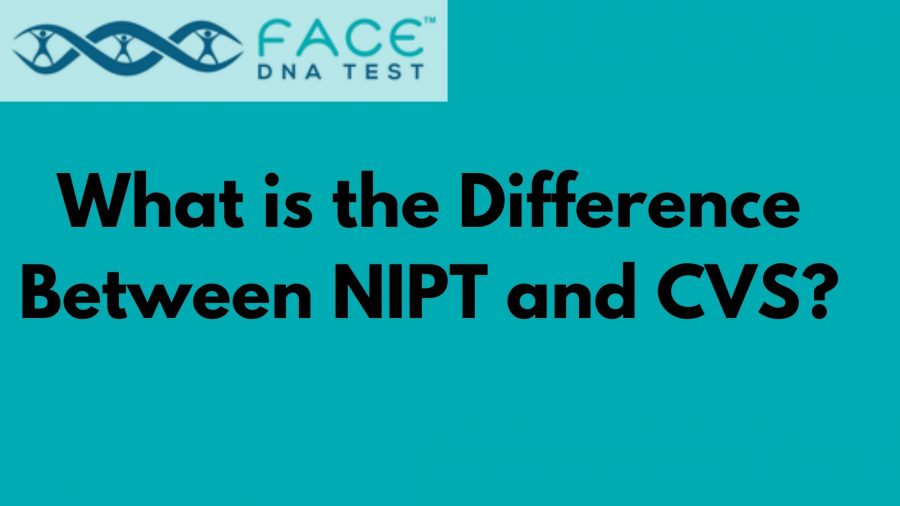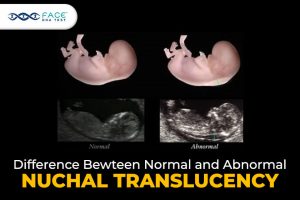During the fantastic pregnancy journey, the expecting couple sets out on a profound voyage full of joy, excitement, and a deep desire to learn. Many questions surface among the magnificent dance of life inside, all of which bear witness to the human desire to protect the unborn child’s welfare. Prenatal testing is one area that develops from this search for knowledge, providing a glimpse into the complex picture of the fetus’s development. Many questions arise during the amazing dance of life that is taking place inside the womb.
Prenatal testing arises out of this understanding and provides a glimpse into the complex fabric of fetal development. Leading the way in this field, the Face DNA Test is a shining example of knowledge, helping eager families navigate the complexities of three potent diagnostic instruments: time-tested Amniocentesis, Chorionic Villus Sampling (CVS), and Non-Invasive Prenatal Testing (NIPT).
What is a NIPT test?
NIPT is a revolutionary development in prenatal screening that uses the mother’s blood to detect fetal DNA. Modern nipt tests do not pose any hazards to the pregnant woman or her baby during pregnancy. Non-invasive prenatal testing, or NIPT test, verifies tiny fragments of cell-free fetal DNA swimming in the mother’s blood. Medical practitioners can use this DNA testing procedure to screen for specific genetic abnormalities in the developing newborn without causing any intrusive testing or harm to the fetus. The interpretation of the infant’s genetic markers provides an early diagnosis of potential issues. This non-invasive approach involves taking a mother’s blood sample to analyze the fetus’s DNA instead of removing tissue samples from the amniotic fluid.
What Does the NIPT Test For?
NIPT is an excellent and safe method of screening for specific diseases . Among these are:
- Trisomy 21 is another name for Down syndrome.
- Trisomy 18 or Edwards syndrome
- Trisomy 13 in Patau syndrome and Turner syndrome
Additionally, some labs test your baby’s sex and check for variations in the sex chromosomes. The test finds numerous chromosomal abnormalities. It is not able to check for hereditary illnesses like:
- fibrosis cystica
- thalassemia
- Anaemia with sickle cells
Your baby’s likelihood of having a chromosomal difference will be determined via screening. Having a diagnostic test is the only way to be certain.
What is a CVS pregnancy test?
A small amount of cells from the placenta is obtained during a diagnostic procedure called Chorionic Villus Sampling (CVS), usually carried out during weeks ten and thirteen of gestation. Compared to other intrusive techniques, this CVS pregnancy test presents a rare chance to evaluate the genetic composition of the growing fetus at earlier stages of development.
NIPT, CVS, and Amniocentesis: A Comparison
The next step to obtain conclusive genetic information on the health of your unborn child will probably be one of three prenatal diagnostic procedures if your pregnancy ultrasound or noninvasive prenatal testing (NIPT) revealed bad results:
Face DNA experts who specialise in treating high-risk pregnancies in maternal-fetal medicine do both tests. We can ascertain a fetus’s chromosomal or genetic status via CVS and amniocentesis. In CVS vs. amniocentesis, where both are invasive procedures we can run a range of tests for certain disorders brought on by chromosomal or gene alterations. Depending on your unique genetic background and family history both procedures tend to check upon the chromosomal defects either early or late in the pregnancy period.
Another very effective option is nipt testing. As compared to CVS and amnio, a nipt test proves to be more effective and safe. When compared, NIPT vs CVS or nipt vs. amnio, the non intrusive option verifies and rules out genetic abnormalities or questions of paternity with more precision and accuracy rate , without jeopardizing the health of mother and the child.
Potential hazards associated with CVS procedures:
Several possible hazards remain despite the procedure’s existence for more than 40 years. Despite being widely accepted as safe and productive, the technique is viewed as more intrusive and may pose possible health risks. Among these dangers are:
- Pain and discomfort:
- Risk of Infection:
- Risk Of Miscarriage
Choose Clarity with Our DNA Test.
Get Accurate Answers With our Test!.
-
- Accurate
- Quick Result
- Private and Secure
- Affordable

Conclusion
Science works toward a future, stretching the frontiers of healthcare in which every stage of the pregnant journey is lighted by the dazzling light of understanding and expertise. By adopting modern technologies while maintaining the highest standards for medical treatment and moral conduct, science is advancing toward this goal. Face DNA Test can take this transforming journey together, confidently and negotiating the complexities of NIPT, CVS, and amniocentesis. You may be confident that our team’s steadfast dedication and relentless quest for quality in prenatal care foster the wonder of life.






Leave a Reply
Your email is safe with us.
You must be logged in to post a comment.